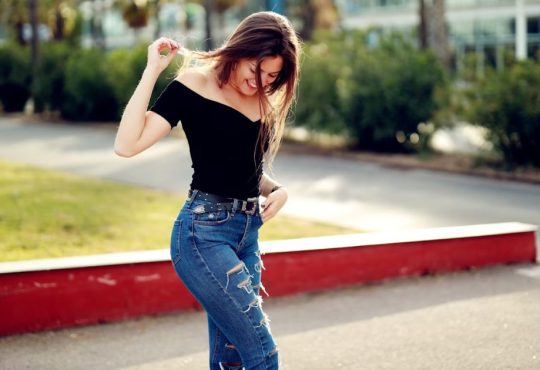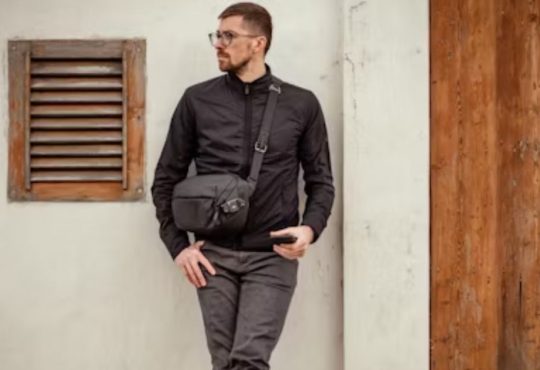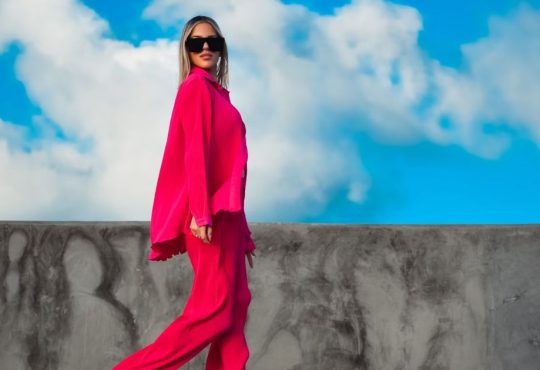The fashion industry in 2025 showcases a dynamic mix of established luxury houses, rising stars, and innovative brands prioritizing sustainability, inclusivity, and creativity. Among the top contenders this year are Louis Vuitton, Gucci, Chanel, Hermès, Prada, Balenciaga, Dior, Versace, Adidas, and Burberry. These fashion brands are redefining the fashion landscape by blending heritage with modernity and embracing digital advancements. Each one contributes uniquely to shaping trends and influencing how fashion is experienced globally.
Innovative Fashion Brands Redefining 2025 Trends
1. Louis Vuitton
Louis Vuitton remains at the forefront of luxury fashion, blending heritage with innovation. Under the leadership of Pietro Beccari, the brand continues to dominate the high-end market with its collaborations, iconic handbags, and accessories. Louis Vuitton’s investments in high-profile sports events and its recent ventures into hospitality showcase its strategic expansion beyond traditional fashion, ensuring its spot as a dominant player in 2025.
Why It Dominates:
Louis Vuitton has long been the epitome of luxury, and in 2025, it continues to set the bar for the fashion industry. Under the leadership of CEO Pietro Beccari, the brand has expanded its presence beyond traditional fashion into areas like sports and hospitality. Louis Vuitton’s collaborations with high-profile events such as the Paris Olympics and Formula 1 have enabled the brand to extend its influence across diverse sectors. Moreover, its timeless designs—like the LV monogram bags—remain highly coveted, while its ongoing innovation with cutting-edge materials and craftsmanship ensures its continued relevance. The brand’s ability to balance heritage with modernity allows it to cater to both traditional luxury customers and younger, trend-conscious consumers.
2. Prada
Prada has strengthened its position as one of the most influential fashion houses through a blend of timeless designs and bold, experimental pieces. The brand’s ability to stay ahead of trends while maintaining its heritage aesthetic has helped it remain relevant. Prada’s possible acquisition of Versace, rumored for 2025, is expected to solidify its dominance further, offering a broader luxury portfolio.
Why It Dominates:
Prada is a pioneer in the world of luxury fashion, known for its unique approach to blending elegance with bold experimentation. The brand’s sophisticated designs, often with a quirky twist, appeal to fashion-forward individuals who crave both style and substance. In 2025, Prada’s continued success can be attributed to its visionary leadership, its focus on innovation, and its ability to stay ahead of fashion trends. The potential acquisition of Versace, which is currently making waves in the industry, could further amplify Prada’s dominance by expanding its influence and strengthening its position in the luxury fashion space. Additionally, Prada’s investment in sustainable practices and commitment to ethical production appeal to a growing consumer base that values social responsibility.
3. Gucci
Gucci, under creative director Alessandro Michele, continues to set trends with its eclectic, maximalist approach to fashion. Known for its bold use of color, patterns, and innovation, Gucci’s influence is evident in the continued popularity of its sneakers, bags, and ready-to-wear collections. The brand’s ability to tap into the cultural zeitgeist and engage with younger audiences keeps it firmly at the top.
Why It Dominates:
Gucci, under the creative direction of Alessandro Michele, remains one of the most influential fashion brands in the world. Known for its maximalist aesthetic, rich use of color, and bold patterns, Gucci continually pushes the boundaries of what luxury fashion can be. The brand’s ability to stay on the pulse of contemporary culture and engage with younger, socially aware consumers has made it an enduring favorite. Gucci’s success also lies in its clever use of digital marketing, collaborations with artists and influencers, and its dominance on social media platforms like Instagram. The brand’s constant reinvention of itself ensures that it remains a cultural icon, appealing to both fashion insiders and the mainstream.
4. Balenciaga
Balenciaga’s avant-garde designs, directed by Demna Gvasalia, continue to captivate the fashion world. From oversized silhouettes to reinterpreting streetwear aesthetics, Balenciaga has become synonymous with boundary-pushing fashion. The brand’s ability to blend high fashion with accessible streetwear has made it a dominant force, especially with its popularity on social media and among celebrities.
Why It Dominates:
Balenciaga’s reputation for avant-garde design and its ability to redefine modern fashion has kept it at the top of the luxury fashion hierarchy. Under the direction of Demna Gvasalia, Balenciaga has embraced the intersection of high fashion and streetwear, with its oversized silhouettes, graphic tees, and innovative footwear becoming staples in both high fashion and casual wardrobes. The brand’s willingness to challenge conventional norms and embrace bold, unconventional designs has helped it maintain a strong, influential presence. Moreover, Balenciaga’s integration of sustainability into its production processes and its collaborations with other cutting-edge brands continue to enhance its appeal to younger, eco-conscious consumers.
5. Chanel
As one of the most iconic and enduring fashion houses in the world, Chanel remains an emblem of luxury. Known for its timeless designs, such as the Chanel suit and the quilted handbag, the brand’s consistent ability to innovate while respecting its heritage ensures its continued success in 2025. Chanel’s commitment to high-quality craftsmanship and exclusivity keeps it at the top of the luxury market.
Why It Dominates:
Chanel’s position as one of the most iconic and enduring fashion houses in the world is well-established. Known for its classic designs, like the Chanel suit and quilted handbags, Chanel has maintained its dominance by sticking to its roots while innovating in subtle ways. The brand’s ability to uphold its timeless, sophisticated aesthetic while adapting to contemporary trends has made it a symbol of status and luxury. Chanel’s focus on impeccable craftsmanship, exclusivity, and its commitment to a high level of customer service are central to its continued success. While other brands embrace rapid shifts in fashion, Chanel remains a beacon of elegance and class, attracting those who seek understated luxury.
6. Dior
Dior, under the guidance of Maria Grazia Chiuri and Kim Jones, continues to influence the fashion world with its stunning haute couture collections and highly coveted ready-to-wear lines. The brand’s attention to detail, craftsmanship, and bold collaborations with contemporary artists have made it a powerful presence. Dior’s ability to balance modernity with its classic codes of elegance keeps it at the forefront.
Why It Dominates:
Dior has long been synonymous with elegance and luxury, and under the creative direction of Maria Grazia Chiuri and Kim Jones, the brand continues to thrive in 2025. Dior has skillfully managed to remain relevant in an increasingly digital age by blending its heritage with modern sensibilities. Dior’s innovative use of fabrics, luxurious craftsmanship, and a strong focus on femininity have kept it at the forefront of fashion. The brand’s collaborations with artists and designers, as well as its embrace of sustainability, have also played a significant role in expanding its appeal to younger, more environmentally conscious consumers. Dior’s ability to balance haute couture and ready-to-wear collections with stunning, forward-thinking designs ensures its continued success.
7. Bottega Veneta
Bottega Veneta, with its understated luxury and focus on craftsmanship, has seen a resurgence in recent years. The brand’s signature woven leather bags, alongside creative direction that celebrates subtlety and refinement, have solidified its place as a leader in the high-fashion world. Bottega Veneta’s minimalist yet sophisticated approach to fashion appeals to those seeking luxury without overt branding.
Why It Dominates:
Bottega Veneta is the master of understated luxury. Known for its signature woven leather bags and minimalist designs, the brand has won over a discerning clientele that values quality, craftsmanship, and subtle elegance over overt branding. The creative direction of Daniel Lee, and later Matthieu Blazy, has brought a fresh perspective to the brand, combining modern design with the brand’s rich heritage of craftsmanship. Bottega Veneta’s commitment to craftsmanship and the use of sustainable materials has kept it relevant in the luxury market. Additionally, the brand’s decision to maintain a relatively low profile—eschewing large logos in favor of discreet luxury—has appealed to the growing trend of quiet luxury, where subtlety and refinement are prioritized over conspicuousness.
8. Fendi
Fendi, known for its iconic Fendi Baguette bags and luxurious fur creations, continues to dominate the luxury fashion market. Under the creative direction of Kim Jones, Fendi has embraced modernity while maintaining its opulent design roots. The brand’s influence can be seen across luxury accessories, apparel, and collaborations with artists and designers, making it a leading player in 2025.
Why It Dominates:
Fendi’s legacy of luxury and craftsmanship has made it a dominant player in the fashion world. The brand is best known for its iconic Fendi Baguette bags and its expert use of fur, but its influence extends far beyond these signature pieces. Under the leadership of Kim Jones, Fendi has embraced modernity while staying true to its heritage. The brand has consistently produced innovative collections that blend classic style with contemporary touches, and its use of social media and celebrity endorsements has kept it highly relevant. Fendi’s collaborations with artists and other designers, such as its partnership with Fendi x Versace, have also helped solidify its position as a leader in the fashion industry.
9. Off-White
Off-White, founded by Virgil Abloh, has emerged as a defining streetwear brand that has successfully bridged the gap between luxury fashion and urban culture. With its signature use of quotation marks, bold graphics, and collaborations with brands like Nike and IKEA, Off-White has become a cultural phenomenon. The brand’s ability to appeal to a younger, fashion-conscious audience ensures its continued dominance in 2025.
Why It Dominates:
Founded by the late Virgil Abloh, Off-White has established itself as a leader in the intersection of streetwear and luxury fashion. The brand is renowned for its bold graphics, signature use of quotation marks, and collaborations with prominent names like Nike and IKEA. Off-White’s appeal lies in its ability to bridge the gap between high fashion and streetwear, making luxury fashion more accessible to a younger, trend-savvy demographic. The brand’s influence is evident in its widespread presence on social media, its cult following among fashion influencers, and its continued success with limited-edition releases. Even after Abloh’s passing, Off-White remains a significant force, with the brand’s creative vision continuing to inspire.
10. The Row
The Row, founded by Mary-Kate and Ashley Olsen, is known for its minimalist, understated luxury. The brand focuses on high-quality, timeless pieces made from premium materials. Its elegant, refined aesthetic has earned it a loyal following, making it one of the top luxury brands influencing fashion in 2025. The Row’s commitment to craftsmanship and sophisticated designs keeps it at the top of the fashion pyramid.
Why It Dominates:
Founded by Mary-Kate and Ashley Olsen, The Row has become a symbol of understated luxury. Known for its minimalist, timeless designs, The Row caters to a growing market of consumers seeking quiet luxury—pieces that are refined, high-quality, and versatile without being flashy. The brand’s commitment to craftsmanship, with each garment being made to the highest standards, has earned it a loyal following. Its understated aesthetic and focus on creating wardrobe staples have made it a favorite among fashion insiders who prefer a subtle approach to luxury. The Row’s emphasis on longevity, sustainability, and ethical sourcing also resonates with the increasing number of consumers prioritizing ethical fashion.
Honorable Mentions:
- Versace: Known for its glamorous, bold aesthetic, Versace continues to be a major player in luxury fashion.
- Saint Laurent: With its sleek, Parisian chic aesthetic, Saint Laurent remains a key influencer in high-end fashion.
- Celine: Celine’s minimalist approach and sophisticated designs, under the direction of Hedi Slimane, ensure it maintains relevance in 2025.
- Hermès: Known for its luxurious leather goods and classic designs, Hermès continues to dominate the high-end market.
Shaping Fashion’s Future: Sustainability and Innovation in 2025
In 2025, the fashion industry reflects shifting consumer values, with sustainability, ethical sourcing, and inclusivity driving growth. Digital innovation transforms brand interactions through virtual shopping experiences and augmented reality. The leading fashion brands of the year combine heritage with modern innovation, creativity with commerce, and luxury with accessibility. Sustainability, inclusivity, and digital advancements redefine trends, reshape the fashion landscape, and influence both clothing choices and the overall experience of fashion.





